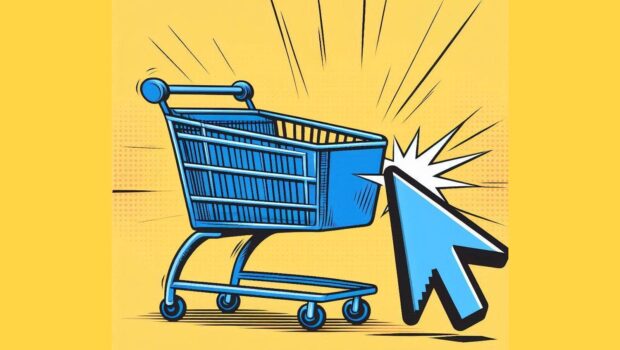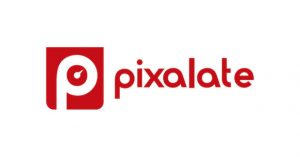“Most companies in retail media have hit some kind of ceiling,” Defining the Future of Commerce with Andreas Reiffen, Pentaleap
by on 26th Sep 2024 in News

Retail media is emerging as a powerful tool for retailers and brands, transforming how they connect with consumers and generate revenue. To delve deeper into this growing trend, we spoke to Andreas Reiffen, CEO and founder of Pentaleap.
One of the major trends of 2024, retail media is gaining significant traction as retailers recognise its potential to monetise their digital real estate by offering brands premium ad space. This shift is transforming the way brands reach shoppers at the point of purchase, and it’s creating a lucrative new revenue stream for retailers.

Andreas Reiffen has a 15 year career in the ad industry, and first encountered retail media in 2015. He has seen significant evolution in the space over the last near-decade, culminating in Crealytics spinning off retail media platform Pentaleap: "Most companies in retail media have hit some kind of ceiling. So it's really hard to further scale their ad revenues to the extent they might have envisioned a couple of years ago. So why is this the case? I think primarily, it's a problem of fragmentation."
Industry fragmentation and growth
This fragmentation is one of the main issues, and questions around retail media, which is often discussed with reference to incredibly high margins, but also with reference to lack of scale. Andreas outlines the issue of fragmentation, as several people want a piece of the pie: "Sometimes they want budget for email, while a separate guy comes for on site display, and another guy comes for sponsored products. As a brand, it's just an absolute nightmare to play that game. So there is an ecosystem today where the different retail media networks harm themselves collectively, because altogether they are much smaller in their ad inventory compared to bigger players."
So how can the industry overcome this potential blocker: "What you really need is a separation between supply side and demand side tech. You have companies that do the ad serving, but also deliver all the demand, or connect tools, but it's all going through this one bottleneck. There is no reason why the industry needs to operate that way. At Pentaleap, we have instances where we just have our ad server and an SSP component, so we can easily connect any demand source. I don't think that we have a technological barrier. It's just that the industry that the ecosystem is not used to operating that way yet."
Standards and competition
As retail media grows, more and more questions are asked around standards and measurement, as well as how programmatic can gain a foothold in the sector: Andreas sees this as a natural development as the market matures: "We have lots of companies currently in the space, and there are many players that can add value to the industry. The current dominance of direct sales and private markets will gradually go down, and a programmatic approach will be on the rise, because that's the only way. It's not cost efficient from the retailer’s side. This might be different if you are Home Depot and you own the whole category in the United States, but there are hundreds of smaller players, and their programmatic will probably play a more crucial role."
So how will this programmatic system manifest itself as part of the retail media proposition?: "Whoever will be best at serving highly relevant ads and maximising yield on the retailer side should be entitled to actually serve those ads. And whoever has the best relationships on the brand side on the advertiser side, should bring demand. And this is a functional ecosystem, but that's still quite a way to go until we get there. But this is where the industry is heading and retailers are smart to use technology that doesn't force them into one walled garden ecosystem."
The measurement question
As retail media grows, more and more questions are asked around standards and measurement. Andreas sees movement in that area, but isn’t sure that it can be 100% solved for: "It is an illusion that we will solve the measurement problem even if we could, because the rules of the game are as a publisher, as a retailer, you have an incentive to sell the greatest ROI and if brands invest in accordance to the ROI we cannot expect that this will ever be fully transparent in the world outside the retail media walled gardens."
Despite this, Andreas sees the improvement in measurement: "Incrementality based measurement took over when, due to the privacy limitations, the old measurement that was never good started showing inferior results. Then there was a self interest to move to better methodology in retail media. We do not have this privacy-induced data churn. So, while everyone will be talking about it, nobody will be fully committed to solving this to a hundred percent."
A bright future
As retail media’s reputation grows, Andreas is pleased at his company’s position in the market, and sees a bright future for the sector, after learning from previous mistakes: "I think what gets me excited is that when we started looking into retail media, and the first time we wanted to make the space programmatic, we went to market and we miserably failed at that point in time!
I now see it wasn't wrong. It was just the wrong point in time, and I firmly believe that things that do make sense at some point will come through. For example, Microsoft search demand will be connected to retail media, and I'm sure that soon Google search demand will be connected to retail media. There will be a diversity of different ad server yield management technologies in the space. And this way we will reach the very bullish forecast of retail media being a 100 billion plus sector in the Western world."
MeasurementMonetisationRetail Media








Follow ExchangeWire